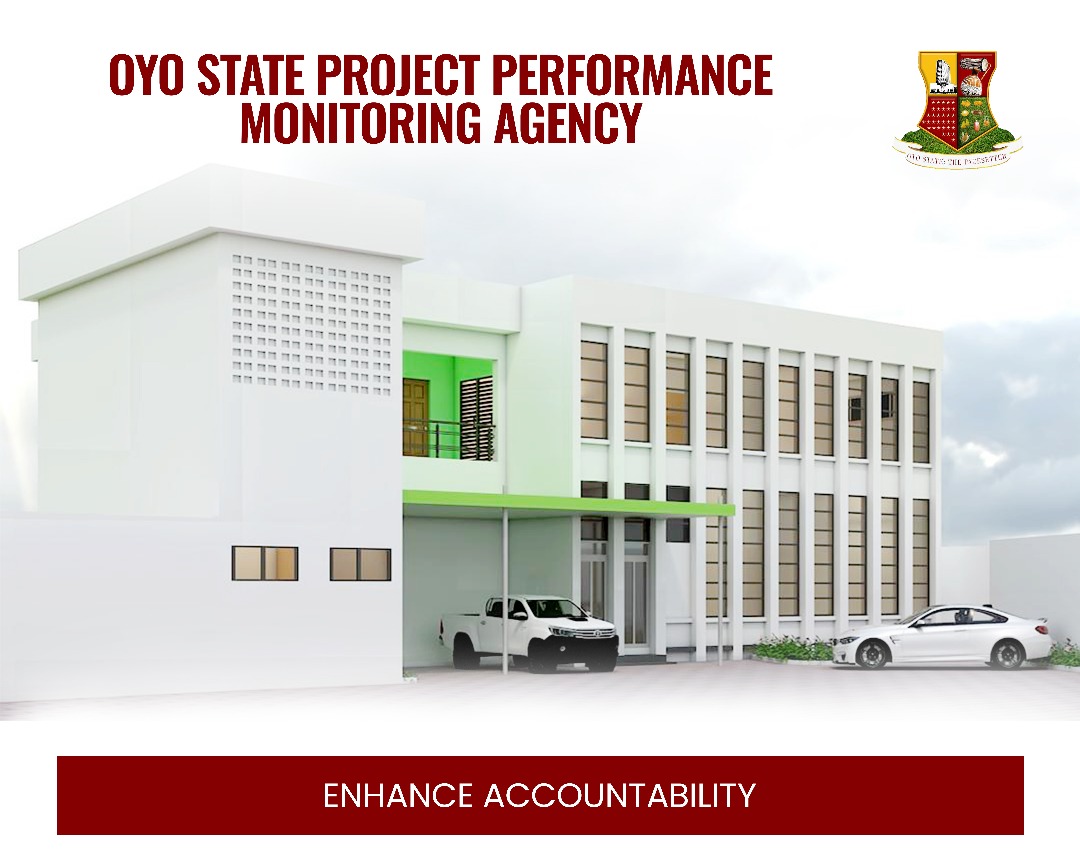Tight grip: Governors Devise New Strategies to Keep LGs Under Control
Despite its significance to progress and development at the grassroots, local governments in the country have been treated as personal estates of governors, who have shown little or no regard to that tier of government. In this report, DIRISU YAKUBU of Punch Newspaper examines the conduct of council polls in recent times and the threat it poses if governors are not quickly prevailed upon to let go of their grip
Virtually everyone agrees that governance at the grassroots level is critical to the authoritative allocation of values in any civilised society. Given its proximity to the people, scholars and stakeholders of local government administration have been consistent in their advocacy for autonomy for the third tier of government.


Since the return to the democratic mode of governance in 1999, Nigerian governors have practically demonstrated little or no official eagerness to allow democracy to play out at the grassroots level. With the possible exception of a few, Nigerian governors see and treat Local Government Areas as personal fiefdoms.
Without a doubt, the nation’s extant law is partly to blame for this. While vesting the powers to conduct presidential, National Assembly and governorship elections on the Independent National Electoral Commission; the constitution does not accord local government council the status of a tier of government; leaving elections into chairmanship and councillorship seats to the selfish machinations of these all-powerful governors.

Often taking advantage of the poverty in rural settings, state governors hardly implement genuine empowerment programmes at the grassroots; a development that has continued to fuel rural-urban migration for decades. Where elections are held at all, they handpick their loyalists, many of whom helped mobilise support for them during electioneering campaigns.
Consequently, even unpopular governors have found a way to keep their political parties relevant at the local government level at all cost, regardless of their own popularity or record of performance.
Arguably, nowhere has this been recently demonstrated than in Edo State, the famed heartbeat of the nation where the outgoing Governor Godwin Obaseki whose Peoples Democratic Party made a clean sweep of all 18 chairmanship seats in the September 3, 2023 council poll.
Earlier in the year, Obaseki and the PDP’s waning popularity had been glaring for all to see as they lost the presidential election to the Labour Party and the All Progressives Congress.
In last year’s general election, LP’s Peter Obi polled a total of 331,163 to win the state, while Bola Tinubu, the then-candidate of the APC scored 144,471 to finish second. Atiku Abubakar of the PDP came a distant third with 89,585 votes.
If that electoral shellacking was seen as a slip, what followed next left even chronic PDP loyalists shell-shocked.
In the February 25, 2023, Presidential and National Assembly elections, the party lost all three senatorial district seats to the APC which won two and the LP which clinched one. That’s not all! The PDP won only a single seat in the 9 House of Representatives seats, with APC winning six while LP won two. Thus, the question was, “How exactly did the party manage to pull off an incredible feat it recorded in September of the same year during the council poll?”
The Edo scenario was no different from Adamawa State where the ruling party won all chairmanship seats in the 21 Local Government Areas. In oil-rich Akwa Ibom State earlier in the month, a council election held in the 31 council areas left millions of Nigerians in a bout of laughter.
Perhaps careful not to obstruct the political understanding in the state between Governor Umo Eno of the PDP and the Senate President Godswill Akpabio, the State Independent Electoral Commission declared the PDP winner in 30 LGAs while APC miraculously won in Essien Udim, Akpabio’s Local Government Area.
Similarly, the All Progressives Grand Alliance won all 21 seats in Anambra while PDP picked all 20 seats in Bauchi, 17 out of the 17 chairmanship seats in Enugu, eight seats out of eight in Bayelsa; 25 out of 25 in Delta all 33 seats in Oyo State. The main opposition party was similarly unstoppable in Taraba where it won all 18 council seats.
It was the same tale of victory for the ruling APC in Benue where the cleric-turned-politician Governor, Hyacinth Alia secured all 23 chairmanship seats. Elsewhere the ruling APC made it 27 out of 27 in Borno, 13 out of 13 in Ebonyi and all 16 seats in Ekiti State.
The President’s party was on song too in Gombe, Imo, Jigawa, Kebbi and Kaduna states, where it won 11, 27, 27, 21 and 23 seats respectively, among others.
The joker in the park is the hitherto unknown Action Peoples Party, which won 22 out of the 23 chairmanship seats in Rivers State earlier in the month. This is even as political pundits argue that APP’s victory was largely the work of Governor Siminalayi Fubara, whose fight to the finish with the Federal Capital Territory Minister, Nyesom Wike, for the soul of the oil-rich state, has left hitherto dominant PDP, gasping for breath.
Speaking exclusively with The PUNCH, Professor of Political Science and former Minister of Education, Tunde Adeniran described the manipulation of council elections as “a disaster,” even as he called for an overhaul of the process to change the narrative.
“Yes, it is a disaster! This trend underscores the need for a total resetting of the political process,” he said.
In his contribution, political analyst, Jackson Ojo blamed the hijack of council elections by governors on State Electoral Commissions, adding that in the past, a national umpire used to be in charge of all elections in the country.
In a telephone conversation with The PUNCH, Ojo said, “What we are seeing these days is actually an abnormality and lawlessness but it is gradually becoming a norm in our political system. In the past, it was the national electoral umpire that used to conduct elections in local government areas. Suddenly, the law permitted the state governments as it enshrined in their laws enacted by their respective States’ Houses of Assembly to conduct council polls.
“This has now been abused by state governors as the ruling parties in the respective states will always win all the chairmanship and councillorship elections. It is not democracy when you hijack the system and shout victory.
“There is no way the local government areas will be autonomous of state governors if this system continues to thrive. It is for this reason that some opposition parties now boycott council polls to indicate their level of frustration,” he said.
Describing the development as a danger to democracy, Mr Ojo called on the federal parliament to wade in through legislative intervention to address the issue.
“The National Assembly should enact a law to revert to the old order, which gave power to the national electoral commission to conduct local government elections. The Independent National Electoral Commission may have integrity burden but it is far more credible than the State Independent Electoral Commissions,” he added.
Joining the conversation is the former Secretary General of the Arewa Consultative Forum, Mr Anthony Sani who like others, laid the blame of comprised election polls at the feet of overbearing state governors.
He said, “I have said several times that governors have used state electoral commissions to kill democracy at local government level. That is why opposition parties do not win a single councillor seat in the states.
In fact, that is what has informed our opposition to state police which can be abused similarly by state governors.
“The way out of this quagmire is to expunge state electoral commissions from the constitution and allow INEC to conduct all the elections on the same day. That way, democracy will be practised at the local government level. This will also reduce the cost and prevent the bandwagon effect of the current situation,” adding that “If Kenya can conduct all its elections on the same day, Nigeria can also do so.”
Recall that only recently, the member representing Doguwa/Tudun Wada Federal Constituency, Kano State, Alhassan Ado-Doguwa, called on INEC to take over the conduct of local government elections to ensure transparency and integrity.
“INEC is the only reliable electoral umpire. We must quickly review our electoral and constitutional laws to provide for INEC to conduct local council elections; otherwise, local council elections in Nigeria will continue to be a caricature of what they should be.
“Our electoral system, our constitutional instruments and our participatory democratic processes can only be guaranteed under elections conducted by the INEC. It will further entrench the philosophical wisdom of the recent supreme court’s pronouncement and judgement on the autonomy of the third tier of government in Nigeria,” Doguwa was quoted as saying.
Similarly, INEC Chairman, Prof Mahmood Yakubu on May 23, 2024, described local government elections as mere coronations of ruling party candidates and called for significant reforms to ensure fair and credible elections.
Yakubu who had expressed his concern during a courtesy visit by the executive members of the Forum of State Independent Electoral Commissions, accused State Governors of manipulating the exercise in favour of their respective political parties.
“Realising our shared responsibility for the conduct of democratic elections in Nigeria and the challenges faced by SIECs in carrying out their mandates, INEC encouraged the establishment of FOSIECOM in a genuine effort to foster partnership for credible elections in Nigeria.
“Unfortunately, the conduct of local government elections in virtually all the states of the federation has become mere coronation of candidates of the ruling parties. It is time to stop the coronation and conduct proper elections.
“In some states, the SIECs are either not properly constituted, have no security of tenure or their critical functions have been taken over by government officials. Some SIECs are only constituted on the eve of elections and dissolved thereafter.
“They are also severely under-resourced to the extent that some of them rely on INEC even for basic facilities such as ballot boxes and voting cubicles,” the INEC Chairman was quoted as saying.
On his part, the Social Democratic Party has called on the judiciary to step in and save the third tier from collapse.
In an interview with The PUNCH, SDP National Publicity Secretary, Rufus Aiyenigba said, “There is no democracy in Nigeria, going by the unpleasant and condemnable undemocratic actions of the political class. What we have is civil rule.
“The emasculation of the third tier of government by the governors is an aberration; it is a mockery of the ideals of democracy as it retards the growth of the grassroots.
“The judiciary should be hard on violators of its judicial pronouncements in respect of local government’s autonomy.
“Additionally, the administrators of our federal allocations should, as a matter of public interest, do the needful in getting the funds of the councils straight to them. That’s the right thing to do because it is the settled law of the land as of today,” he said.
Credit: Punch

